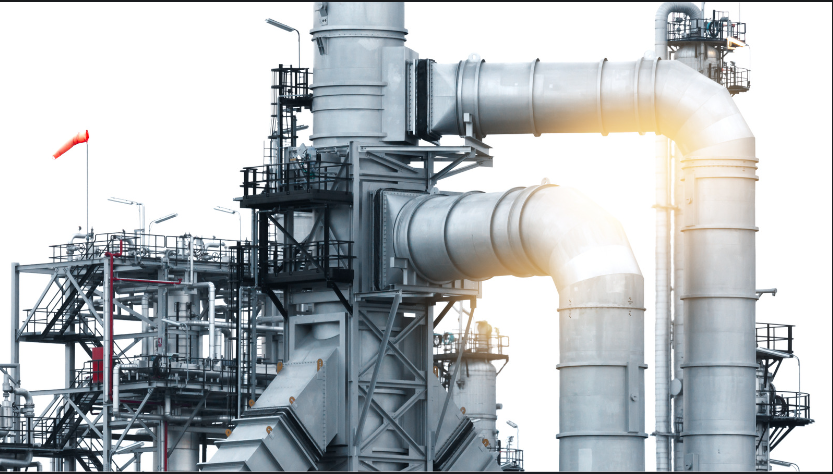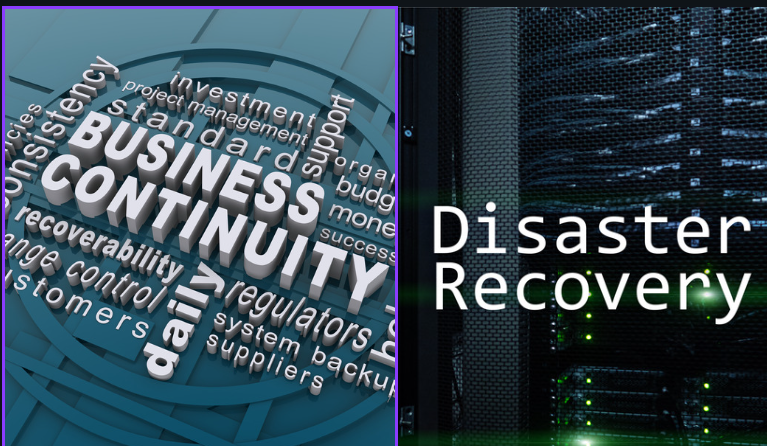The oil and gas extraction industry is a cornerstone of the global economy, fueling energy needs worldwide. However, its increasing reliance on digital technologies, combined with growing geopolitical tensions, has made it a prime target for cyberattacks. With the complexity of operational technology (OT) systems, third-party risks, and the expansion of interconnected digital networks, safeguarding this industry against cyber threats has become a critical challenge.
In this blog, we explore the most pressing cybersecurity risks facing the oil and gas extraction sector, recent high-profile attacks, and how companies can protect themselves.
Key Cyber Threats in the Oil and Gas Extraction Industry
The oil and gas industry is particularly vulnerable to cyberattacks due to its operational complexity and interconnectedness. Some of the major cybersecurity threats include:
- Ransomware Attacks Ransomware is one of the most disruptive cyber threats, where malicious actors encrypt critical data and demand a ransom for its release. In the oil and gas extraction industry, these attacks can halt production, disrupt supply chains, and result in significant financial losses. The 2021 Colonial Pipeline attack is a prime example, where ransomware led to widespread fuel shortages along the US East Coast.
- Phishing and Spear Phishing Phishing campaigns are a common tactic used by attackers to trick employees into disclosing sensitive information or downloading malware. Phishing is particularly dangerous in the oil and gas sector, as it can provide unauthorized access to critical OT systems, posing a risk to operations and safety.
- Supply Chain Attacks The oil and gas industry’s reliance on third-party vendors and suppliers makes it vulnerable to supply chain attacks. Cybercriminals exploit weak security measures in vendor networks to gain access to the primary company’s infrastructure, making detection and mitigation challenging.
- Denial-of-Service (DoS) Attacks DoS attacks involve overwhelming a system with traffic to disrupt services. In the oil and gas industry, these attacks can target critical infrastructure, causing production or distribution downtime and significant operational losses.
- Advanced Persistent Threats (APTs) APTs are sophisticated, long-term cyber intrusions, often state-sponsored, aiming to steal sensitive information or cause long-term operational disruption. The oil and gas industry is particularly vulnerable to APTs, given its strategic importance and the geopolitical interests surrounding energy resources.
Recent Cybersecurity Attacks in the Oil and Gas Industry (2023-2024)
Recent years have seen several high-profile cyberattacks on the oil and gas sector, demonstrating the evolving tactics of attackers and the consequences of these breaches.
1. Hitachi Energy Data Breach (March 2023)
In March 2023, Hitachi Energy suffered a significant data breach following a ransomware attack by the CLOP group. This attack exploited a zero-day vulnerability in Fortra’s GoAnywhere MFT software (CVE-2023-0669), leading to the compromise of employee data across multiple countries. Although Hitachi claimed its network operations and customer data remained secure, the incident underscored the vulnerabilities present in OT systems.
2. Halliburton Cyberattack (August 2024)
Halliburton, a major oilfield services company, experienced a cyberattack in August 2024. The breach disrupted operations at its North Houston campus and affected global connectivity networks. While the company activated its cybersecurity response plan and notified law enforcement, experts speculate that the attack was likely a severe ransomware incident, given the offline status of systems.
3. STORMOUS Cyberattack on PVC-MS (September 2023)
In September 2023, the pro-Russian ransomware group STORMOUS compromised 300 GB of sensitive data from Petroleum Equipment Assembly & Metal Structure J.S.C. (PVC-MS), a subsidiary of PetroVietnam. The attack exposed project documents, vendor information, and contract negotiation files, highlighting the geopolitical risks facing oil and gas companies.
4. Danish Energy Sector Cyberattack (May 2023)
Denmark’s energy sector was hit by an unprecedented cyberattack in May 2023, with 22 companies targeted in three coordinated waves. Hackers exploited a command injection vulnerability in Zyxel firewalls (CVE-2023-28771) to compromise the infrastructure of several companies. Although the Danish power grid was unaffected, the incident raised concerns about the vulnerability of critical infrastructure.
5. Suncor Cybersecurity Breach (July 2023)
Suncor Energy, a major player in the oil and gas sector, experienced a breach in July 2023, disrupting debit and credit card processing at Petro-Canada gas stations across Canada. The breach prompted Suncor to replace employee laptops and desktop computers, highlighting the seriousness of the incident. The breach raised concerns about the rising cyber threats in the energy sector.
Impact of Unpatched Vulnerabilities
One of the leading causes of cyberattacks in the oil and gas industry is unpatched vulnerabilities in software and systems. According to a report by Sophos titled “The State of Ransomware in Critical Infrastructure 2024,” unpatched vulnerabilities accounted for 49% of ransomware attacks in the oil and gas sectors in 2024. In particular, vulnerabilities like the one in Fortra’s GoAnywhere MFT (CVE-2023-0669) have led to significant breaches, such as the Hitachi Energy attack.
| Top Causes of Cyberattacks in Oil and Gas (2024) | Percentage |
| Unpatched vulnerabilities | 49% |
| Compromised credentials | 27% |
| Phishing campaigns | 18% |
| Supply chain attacks | 6% |
Unpatched systems pose a serious risk to critical infrastructure, making it essential for oil and gas companies to stay ahead of vulnerabilities by deploying timely security patches and updates.
Importance of Supply Chain Security
Supply chain vulnerabilities are a growing concern for the oil and gas industry, with many attacks stemming from weak links in third-party networks. In the oil and gas industry, where operations are interconnected, even a minor breach in the supply chain can lead to widespread disruption.
How to Strengthen Supply Chain Security:
- Continuous Monitoring of Third Parties: Implement real-time monitoring tools to detect potential threats in your third-party ecosystem. SOCRadar’s Supply Chain Intelligence, for example, provides visibility into your entire supply chain and can help detect potential risks before they cause harm.
- Conduct Regular Security Audits: Ensure all vendors and suppliers meet your cybersecurity standards through regular audits and assessments.
- Implement a Zero-Trust Model: Adopt a zero-trust model to minimize the risk of unauthorized access to your network, ensuring that both internal and external users are continuously authenticated and verified.
Strengthening Cybersecurity in the Oil and Gas Sector
To mitigate the risks posed by cyberattacks, oil and gas companies need to adopt a proactive approach to cybersecurity. Below are key strategies for bolstering defenses:
1. Invest in Ransomware Intelligence
Ransomware remains one of the biggest threats to the oil and gas industry. SOCRadar’s Ransomware Intelligence service offers real-time insights into threat actor activities, enabling organizations to anticipate and prevent ransomware attacks.
2. Implement a Strong Incident Response Plan
Having a robust incident response plan ensures that in the event of a cyberattack, your organization can quickly contain the breach, minimize damage, and recover operations.
3. Prioritize Vulnerability Management
Vulnerability management is critical for protecting OT systems. Companies should deploy real-time vulnerability scanning tools and ensure that patches are applied as soon as possible.
4. Training and Awareness
Phishing and spear-phishing attacks remain a significant risk, and employee training is one of the best defenses. Regularly educate your workforce on identifying suspicious emails and practices to follow when handling sensitive information.
Conclusion
The oil and gas extraction industry faces an evolving and complex cyber threat landscape. With ransomware, unpatched vulnerabilities, and supply chain risks all posing significant challenges, a comprehensive and proactive approach to cybersecurity is essential.
Companies in this sector must focus on adopting real-time threat intelligence, strengthening supply chain security, and fostering a cyber-aware corporate culture to stay ahead of emerging risks. By doing so, they can safeguard their critical infrastructure and ensure the resilience of global energy supplies.
FAQs
1. What makes the oil and gas industry a target for cyberattacks?
The oil and gas industry is highly dependent on complex and interconnected digital technologies, making it vulnerable to cyberattacks. Additionally, geopolitical tensions and the sector’s critical role in global energy supply attract both financially motivated cybercriminals and state-sponsored attackers.
2. What are the most common types of cyberattacks in the oil and gas sector?
Common cyberattacks in this industry include ransomware, phishing, advanced persistent threats (APTs), denial-of-service (DoS) attacks, and supply chain breaches.
3. How can oil and gas companies protect against ransomware attacks?
To protect against ransomware, companies should invest in ransomware intelligence services, implement strong incident response plans, and ensure that all systems are updated and patched regularly.
4. What role does vulnerability management play in securing oil and gas infrastructure?
Vulnerability management is crucial, as unpatched vulnerabilities are often exploited in cyberattacks. Regularly scanning systems for vulnerabilities and promptly applying security patches can significantly reduce the risk of breaches.
5. How important is supply chain security in the oil and gas industry?
Supply chain security is critical because oil and gas companies rely on numerous third-party vendors. A breach in one part of the supply chain can impact the entire operation, making it essential to continuously monitor and secure third-party networks.
Click here, to know more about difference between Disaster Recovery and Business Continuity.









